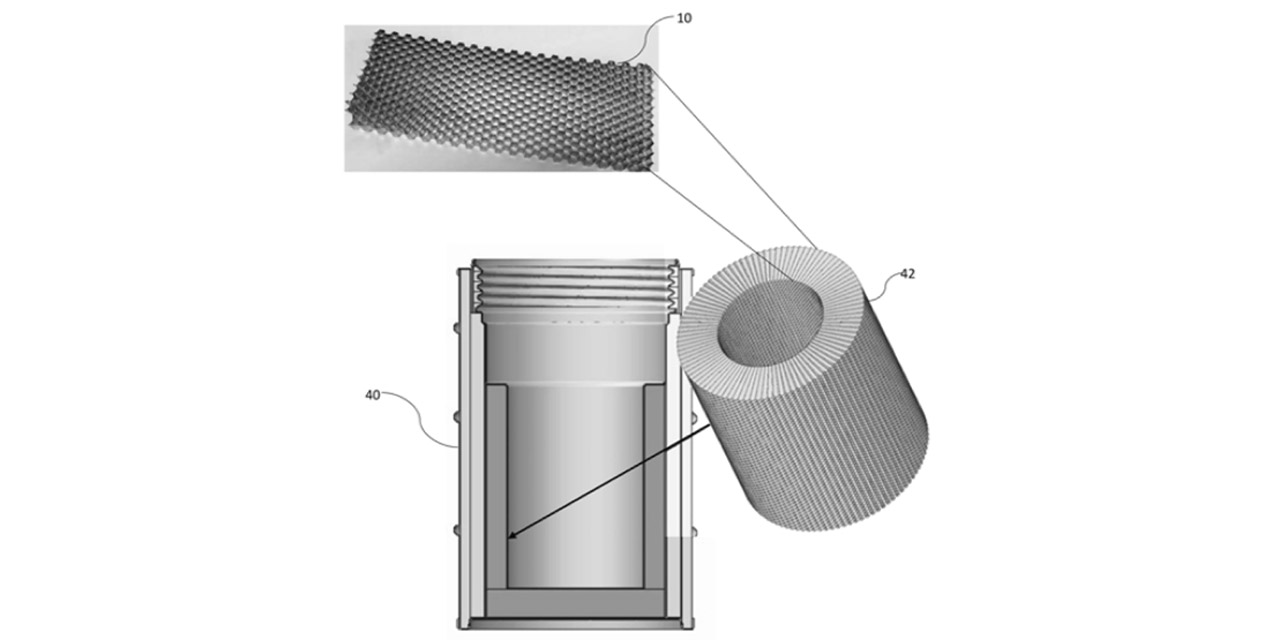Illustration showing how radially oriented honeycomb structures can be used within a container to provide strength, sound insulation, or thermal insulation. The structure includes multiple radially aligned layers of a shaped strip. (Image: SRNL)
Savannah River National Laboratory said it has received a patent for its radially oriented honeycomb structures. The technology offers a solution to the deformation of cylindrical honeycomb structures when they are formed from flat panels, providing a way to create structures with greater wall thickness than traditional methods.
October 29, 2024, 7:03AMRadwaste SolutionsBruce Fox, David Lowe, Jack Reust, and Sean McCutcheon The U.S. Navy’s Surface Ship Support Barge arrives in Mobile, Ala., for demolition after being towed by sea from Virginia. (Photos: APTIM)
The U.S. Navy’s Surface Ship Support Barge, converted in the 1960s from a WWII T2 tanker to a support barge to accept spent nuclear fuel during the refueling of nuclear aircraft carriers, was dismantled and disposed of by the nuclear decommissioning company APTIM as a first-of-its-kind vessel dismantlement project for the Navy. The project was executed under contract with Naval Sea Systems Command; however, regulatory oversight was accomplished through an interagency framework agreement between the U.S. Navy and the Nuclear Regulatory Commission.




